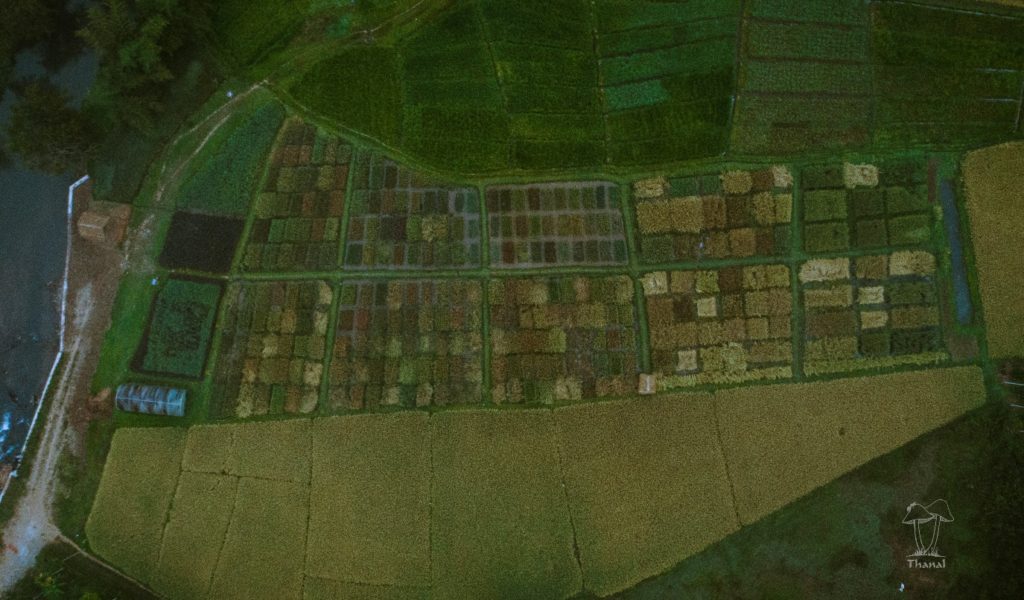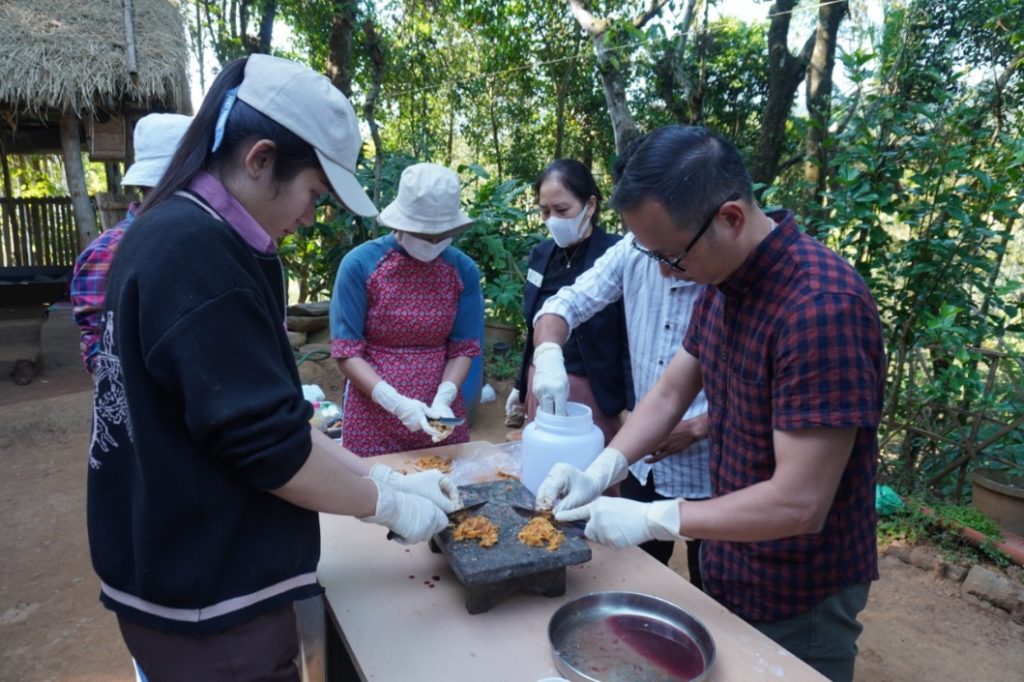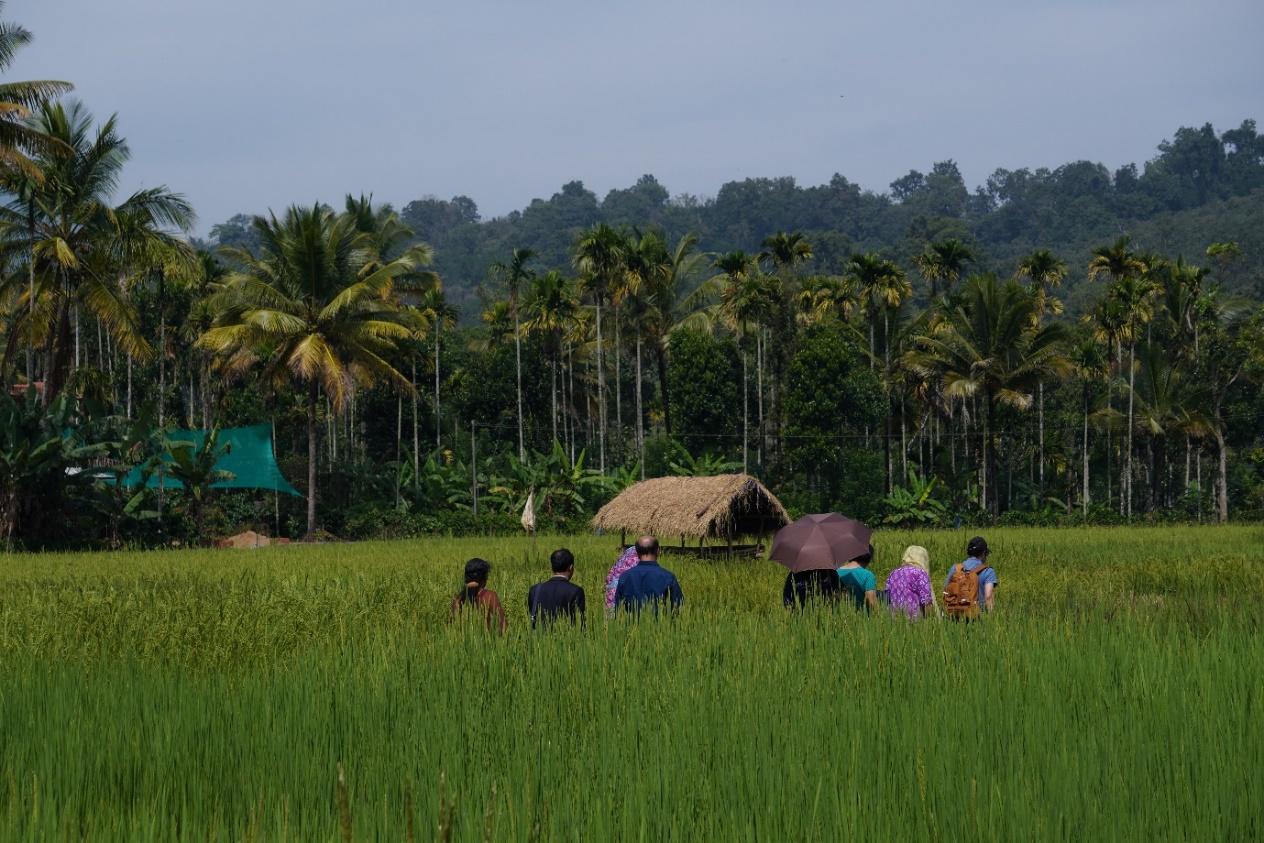Agroecology provides multifunctional benefits to agriculture with a set of guiding principles and a diversity of practices and approaches supported by scientific research. Farmer-centered and anchored on people’s food sovereignty, agroecological practices evolve through experimentation and adaptation to new and changing conditions. As practices vary in different parts of the world, it is essential for us to bring together different farming communities in countries throughout Asia in order to share their expertise, experience and knowledge in sustainable agroecological practices.
PAN Asia Pacific and its partners are actively facilitating these learning exchanges on agroecology among farmers in Asia as a way to help farming communities in the region to transition from chemical intensive agricultural practices that rely on agrochemical corporations, to self-sufficient and sustainable practices.
A learning exchange was held at the Thanal Agroecology Centre in Kerala, India last 18 to 20 November 2022 and involved seven partner organisations from Bangladesh, India, Laos and Vietnam. It aimed to facilitate knowledge sharing and exchanges between participants on their best practices, and provide a more informative and hands-on approach on agroecological practices in the Agroecology Centre.
Thanal Agroecology Centre
Thanal’s Agroecology Centre in Wayanad, Kerala has been actively promoting organic farming to farming communities since its establishment in 2009. It was one of the first organisations in the state of Kerala to carry out agrobiodiversity conservation programs. One of their main goals is to educate the general public on the importance of agricultural biodiversity and the agroecological techniques necessary to preserve it. Thanal is also a Field Learning Site of the International People’s Agroecology Multiversity.

Unique to Thanal Agroecology Centre is the Rice Diversity Block, which holds the largest live collection of paddy varieties in the state. Started in 2010, they began the program with four indigenous paddy varieties. This has now expanded to more than 300 traditional varieties, of which 180 are from Kerala. The Centre organises a rice field week for students, academicians, farmers, government officials and the public to showcase this diversity. The rice seed varieties that they are conserving are suitable to different geographical conditions such as highland varieties, flood-resistant varieties, saline tolerant types, deep water varieties and others.
Thanal Agroecology Centre also maintains 35 species of trees which are generally medicinal trees, trees local to Wayanad, shade trees and timber. A large number of faunas can also be seen such as different kinds of birds, butterflies, damselflies, bees, praying mantises, spiders and others. Thanal Agroecology Centre focuses on delivering agroecological farming practices to the public to ensure better adaptation to climate change and to help mitigate harmful environmental impacts. Thanal also has a wide collection of paddy seeds. Seed exchanges, seed exhibitions and sessions on seed conservation and agroecology are usually organised.
The learning exchange
During the learning exchange, participants were introduced to these aspects of the centre. Anoop Kumar, an expert on biodiversity and pest management, then facilitated a session on ecological pest and disease management. His presentation focused on identifying types of pests and diseases that destroys the crop. Participants were taught on environmentally friendly ways to control these pests and diseases.

Meanwhile, a hands-on organic inputs preparation workshop was conducted by the Thanal team. During the session, different input preparations to improve soil fertility, crop and seed protection were taught to participants. Among the input preparations that were taught were fish amino acid, egg amino acid, neem oil garlic emulsion, soap nut emulsion, cow urine-bird eye chili emulsion, Pseudomonas for seed treatment, jeevamrutha, beejamrutha, chanakapaal, EM solution and panjakavya.

On the second day, participants were brought to a transect walk to learn about different practices in the centre. Thanal led a session on weed management and uncultivated leafy vegetables, as well as on agroecology farm design and management. There was an insightful discussion on all the available resources in a farm and its surroundings, and how each resource related to and complement to a different resource to maintain a good agroecological farm.

A practical exercise on biodiversity monitoring on the farm was also held, where partners learned where to find the organisms in the farm, and the proper techniques for biodiversity monitoring. Images of any insects that are unable to be identified by the partners can be sent to Anoop for identification. The final session was dedicated to different composting practices, wherein participants were able to learn composting at both small-scale and large-scale levels.
The learning exchange received positive feedback, as the farmers are keen on practicing and improving on agroecological practices in their own communities. “The learning exchange gave immense information on agroecology and there were a lot of fruitful takeaways,” said Malavika, a participant from PAN India.
Such exposures to best practices in other farming communities, and stories of how obstacles were overcome, gave the farmers confidence and resolve in working for the transition from chemical dependency to more just, healthy and sustainable food systems.








Discussion about this post